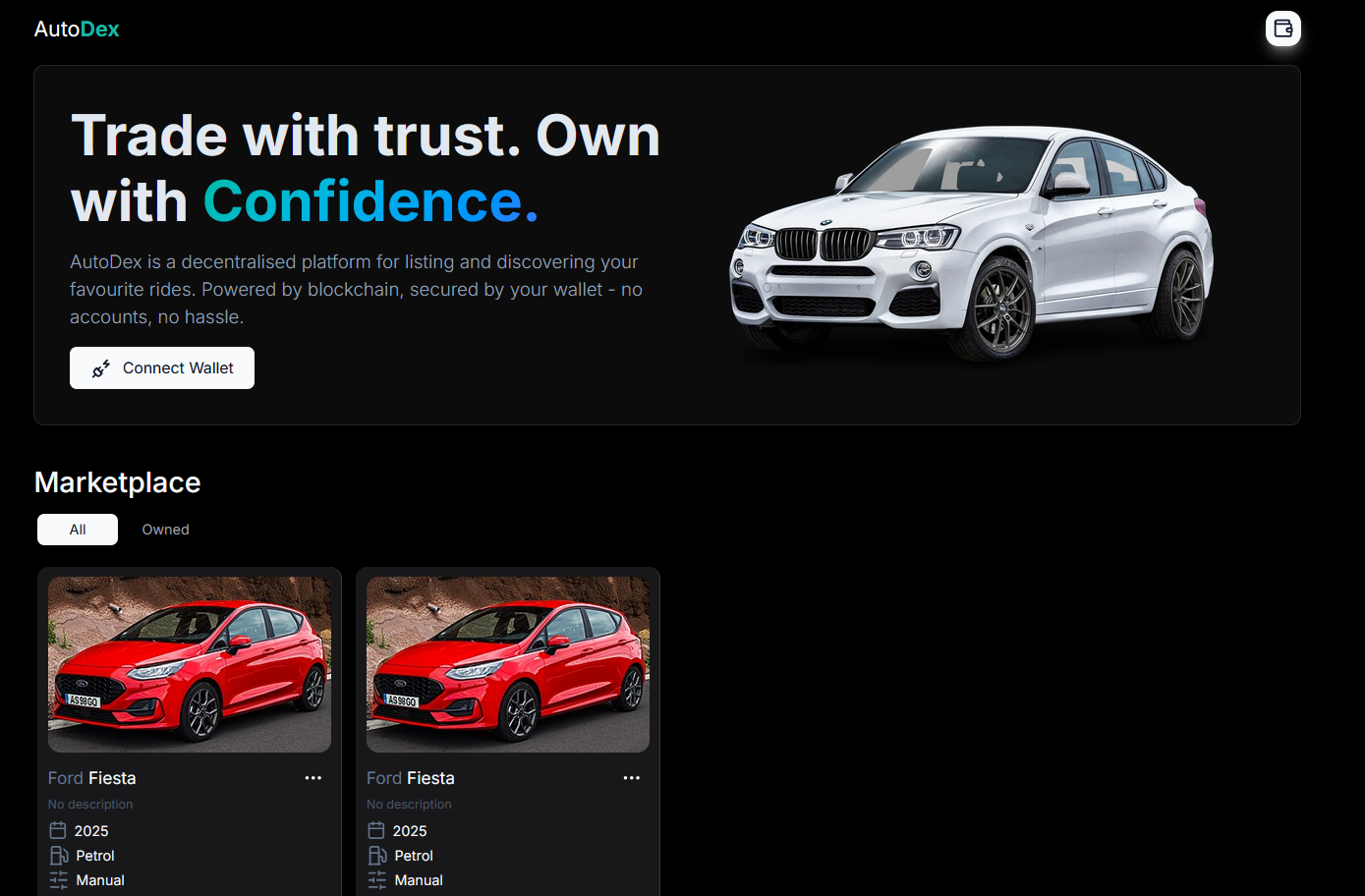Challenge
Traditional car ownership systems rely heavily on centralized institutions for vehicle registration, ownership transfer, and service history tracking. This approach is often slow, non-transparent, and prone to fraud. Buyers must trust third parties to verify the legitimacy of a vehicle, and there is little ownership flexibility or privacy in how car data is handled.
Solution
This project introduces a decentralized car ownership platform that uses blockchain technology to tokenize vehicles as NFTs. Ownership can be securely transferred peer-to-peer, and all data—like service history—is permanently recorded on-chain. By removing centralized intermediaries, users gain full control of their vehicles in a transparent and verifiable way.
Key Features
- NFT-based Ownership: Each vehicle is represented as a unique ERC-721 token, ensuring proof of ownership and provenance.
- Service History Logging: Owners or authorized garages can append immutable service records to a car’s on-chain metadata.
- MetaMask Integration: Users connect with MetaMask to authenticate and interact with their cars—no sign-up required.
- Ownership Transfers: Cars can be bought, sold, or gifted via direct blockchain transactions without intermediaries.
- Marketplace Support: Listed vehicles can be browsed and purchased through a decentralized marketplace.
Technology Stack
- Solidity: Smart contracts are written in Solidity to define NFT logic, marketplace interactions, and service log permissions.
- Ethereum: The core platform is deployed on Ethereum for its security and robust ecosystem.
- MetaMask: User wallets and signatures are handled through MetaMask for seamless authentication and Web3 access.
- IPFS: Vehicle metadata (e.g., images, details, logs) is stored on IPFS to ensure decentralization and content permanence.
- Next.js & MDX: The front-end is built with Next.js, supporting server rendering and MDX-based content.
- Tailwind CSS: Used for consistent, responsive styling across the platform.
Further Work
Despite its advantages, Ethereum’s high gas fees can make the platform expensive to use at scale. Future iterations will explore Layer 2 solutions like:
- Polygon: Offers low-cost transactions with full EVM compatibility, making migration straightforward.
- Solana: Provides high throughput and minimal fees, though it would require rewriting contracts in Rust or Anchor.
Additional features under consideration include decentralized identity (DID) support, rental agreements via smart contracts, and real-time car data tracking using IoT integrations.
By leveraging blockchain, this platform aims to redefine car ownership—making it trustless, transparent, and user-controlled.

